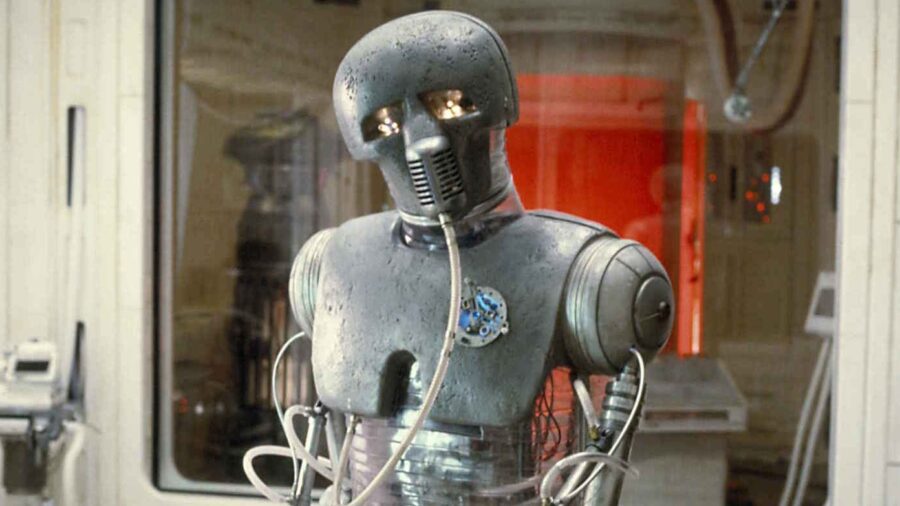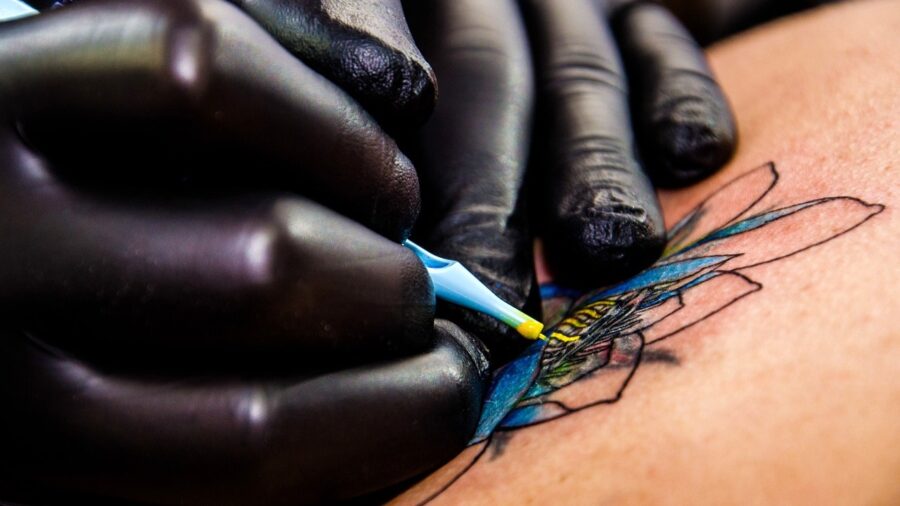Robot Tattoo Artists Taking Over The Business?

In this era of technological advancement, even tattooing is not immune to innovation. Startup company Blackdot recently revealed its automated robot tattoo creation that combines hardware, software, and cloud technology to bring more precision to body art. With its unique approach, Blackdot is making designs previously out of reach for tattoos more accessible.
According to Business Wire, Blackdot’s patented automated robot tattoo device operates from its flagship studio in Austin, Texas. The innovation comes as the tattoo industry is on track to expand to a massive $3.9 billion by 2030, aligning with the growing popularity of tattoos among people from all walks of life.
A company has designed a robotic tattooing device that reimagines the entire tattoo process and could seriously change the future of the business.
The company’s technology is supported by popular artists and pioneers in the field. Artists like Tyler Hobbs, Omer Tunca, and John Craig are partnering with Blackdot to provide exclusive designs, paving the way for a new era of robot tattoos. Blackdot’s Artist Spotlight videos showcase the collaboration between these artists and the revolutionary technology.
One of the key innovations behind Blackdot’s robot tattoo approach is its use of small test dots to “learn” a client’s skin characteristics. These test dots are then compared against Blackdot’s extensive skin database, allowing the system to determine the ideal settings for the tattoo, including the number of punctures and puncture depth.

This meticulous process ensures a fast, accurate, and minimally discomforting robot tattoo experience. “Our grayscale dots are ~250µm in diameter (.25mm), and we’re able to tattoo them with surgical precision, enabling us to execute extremely detailed designs that cannot be tattooed by hand,” Blackdot’s Chief Technology Officer, Doctor Yan Azdoud explained.
Moreover, artists collaborating with Blackdot retain control of their work, offering limited edition collections or unique designs. The designs are stored in a secure cloud accessible at any Blackdot Studio, and blockchain technology is used to track each robot tattoo. Each time an artist’s design is used, they earn a royalty, marking a fundamental shift in the industry’s traditional model.
“Blackdot allows me to easily transfer all these designs to people who like them without crossing to a different continent. In this sense, it brings us together,” Turkish tattoo artist Omer Tunca said about his partnership with the robot tattoo technology company.
“Our grayscale dots are ~250µm in diameter (.25mm), and we’re able to tattoo them with surgical precision, enabling us to execute extremely detailed designs that cannot be tattooed by hand.”
Doctor Yan Azdoud , Chief Technology Officer at Blackdot
Through its Blackdot Certified Artist program, robot tattoo-seekers can commission original designs from artists worldwide and conveniently get them tattooed at any Blackdot Studio. The company has plans to expand into major U.S. cities and abroad. Furthermore, Blackdot will offer limited edition Tradable Tattoos that can be applied, traded, or gifted as unique digital collectibles.
With nearly half of the U.S. population under 40 having one or more tattoos and most women aged between 18 and 29 sporting ink, Blackdot provides access to a burgeoning market that has traditionally been off-limits. It also offers a robust way for artists to license their work in the robot tattoo industry while maintaining quality standards.
Artists like Tyler Hobbs, Omer Tunca, and John Craig are partnering with Blackdot to provide exclusive designs, paving the way for a new era of robot tattoos.
While Blackdot is the first company with a plan to monetize robot tattoo technology, it isn’t the first of its kind. With robots that can be remotely controlled, “distance tattoos” have existed in the tattoo industry for a while. A tattoo artist in one location can manipulate a robot arm in another location to ink a tattoo onto a client’s skin in real time via 5G.
Although robot tattoo systems are not widely used, they can become more common if enough research is done. However, regulation will likely occur if they become more widely used.












